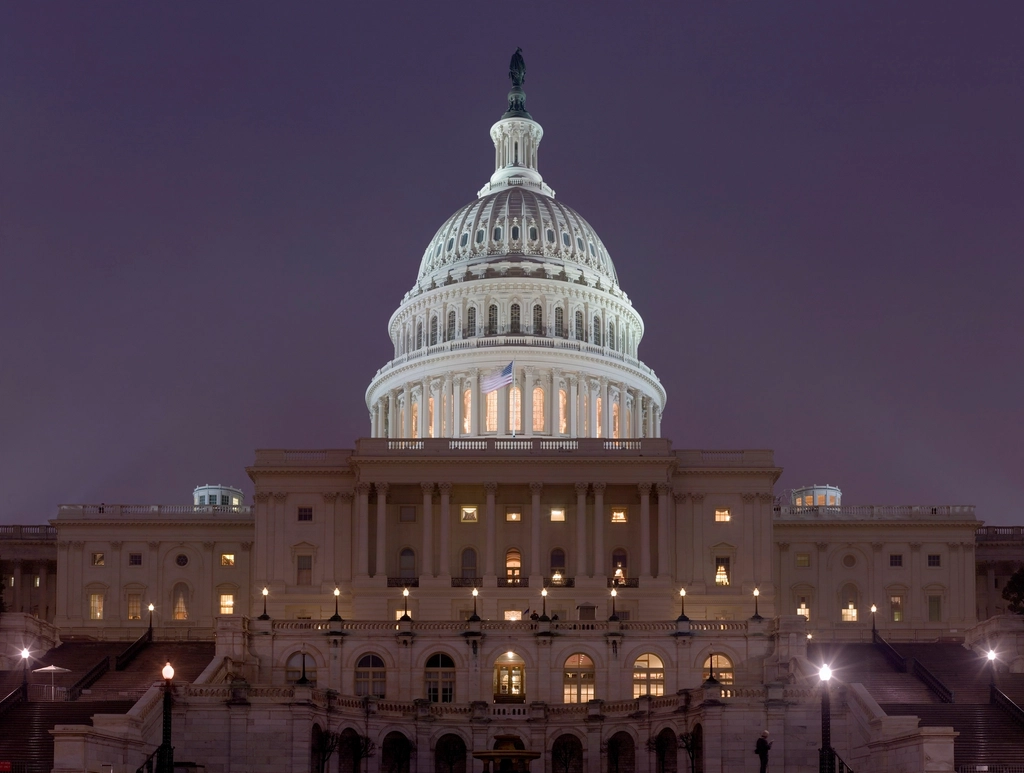The Trump administration has grappled with economic concerns and intensified its stance on immigration, sparking debates about the country’s future direction.
Economic Uncertainty Looms
President Donald Trump’s second term has been marked by growing economic uncertainty. The stock market recently suffered losses, reacting to Trump’s refusal to rule out a potential recession.
Despite these concerns, Trump remains optimistic about the economy. When asked about the possibility of a recession, he stated, “I don’t see it at all.”
The White House is attempting to paint a positive picture of the economic situation. They are highlighting recent inflation data as a sign of financial stability.
According to the latest figures, consumer prices rose 2.8% compared to the previous year. This moderate increase is being touted as evidence of a stable economy.
However, experts warn that Trump’s tariff policies could increase home prices. This potential increase in housing costs may further strain American households.
Government Shutdown Looms
As economic worries persist, the threat of a government shutdown looms large. Trump and Vice President JD Vance are working to prevent this scenario.
They are contacting House Republicans to pass a spending bill before the Friday deadline. Their efforts aim to avoid disruptions in government services and potential economic fallout.
In a positive development, House Republicans have passed a stopgap funding bill. This temporary measure could buy more time for negotiations.
However, the details of this bill and its prospects in the Senate remain unclear. The coming days will be crucial in determining whether a shutdown can be averted.
Trump Defends Tariff Policies
Despite criticism, Trump continues to defend his tariff policies. He recently spoke at a Business Roundtable event, praising the impact of these measures.
Trump claimed that tariffs have had a “tremendously positive impact” on the economy. He argues that these policies protect American industries and workers.
Critics, however, warn that tariffs can raise consumer prices and spark retaliatory actions from other countries.
The ongoing debate over tariffs highlights the complex nature of global trade relationships and underscores the challenges of balancing economic protectionism with free trade principles.
Immigration Crackdown Intensifies
While economic issues dominate headlines, the Trump administration has ramped up its immigration enforcement efforts. Recent actions have targeted both undocumented immigrants and foreign students.
In a high-profile case, ICE arrested Mahmoud Khalil, a leader in Columbia University’s encampment movement. Trump praised this action, calling it the first of “many to come.”
The president accused Khalil of being a “Radical Foreign Pro-Hamas Student.” He vowed to find and deport “terrorist sympathizers” from American universities.
However, Khalil’s attorney disputes the basis for his arrest. She claims Khalil is in the U.S. on a green card, not a student visa.
This case has raised concerns about the targeting of activists and the potential for civil rights violations. It has also intensified debates about free speech on college campuses.
Vance Links Housing Costs to Immigration
Vice President JD Vance has also weighed in on immigration issues. He recently spoke at the National League of Cities conference in Washington, D.C.
Vance discussed the challenges facing the American dream, particularly the difficulty of homeownership. He blamed soaring home prices on illegal immigration.
This claim was met with some pushback from the audience. One attendee interrupted Vance to challenge his statements on immigration.
Vance’s comments highlight the administration’s efforts to link various economic issues to immigration. This approach has been a consistent theme in Trump’s policy agenda.
Education Department Faces Cuts
Amid these developments, significant changes are underway at the Department of Education. Sources report that layoffs are set to begin, with nearly half of the staff expected to be eliminated.
These cuts reflect the Trump administration’s broader efforts to reduce the federal government’s size. They also align with conservative critiques of the department’s role in education policy.
Critics argue that these cuts could hamper the department’s ability to oversee education programs. Supporters claim that streamlining the department will lead to greater efficiency.
The impact of these changes on American education policy remains to be seen. They will likely be a subject of intense debate in the coming months.
Refugee Resettlement Contracts in Jeopardy
In another development related to immigration policy, a judge has greenlighted the cancellation of refugee resettlement contracts. This decision could have far-reaching implications for refugee programs in the United States.
The ruling aligns with the Trump administration’s efforts to reduce refugee admissions. It represents a significant shift in U.S. refugee policy.
Advocates for refugees argue that this decision will harm vulnerable populations seeking safety. They claim it undermines America’s traditional role as a haven for those fleeing persecution.
Supporters of the decision argue that it allows for better control of immigration flows and will enable more thorough vetting of individuals entering the country.
Conclusion: A Nation at a Crossroads
The United States finds itself at a critical juncture as these events unfold. Economic uncertainties, immigration debates, and policy shifts shape the national discourse.
The Trump administration’s actions on tariffs, immigration, and government spending are likely to have lasting impacts. They will influence not only domestic politics but also America’s role on the global stage.
As the country moves forward, these issues will remain hotly debated. The outcomes of these debates will play a significant role in shaping America’s future.
In the coming months, the administration’s handling of these challenges will be watched closely. The responses to economic pressures, immigration concerns, and policy shifts will also be closely watched.
Ultimately, these developments highlight the complex interplay between economic policy, immigration, and national identity. They underscore the ongoing struggle to define America’s path in an increasingly interconnected world.

